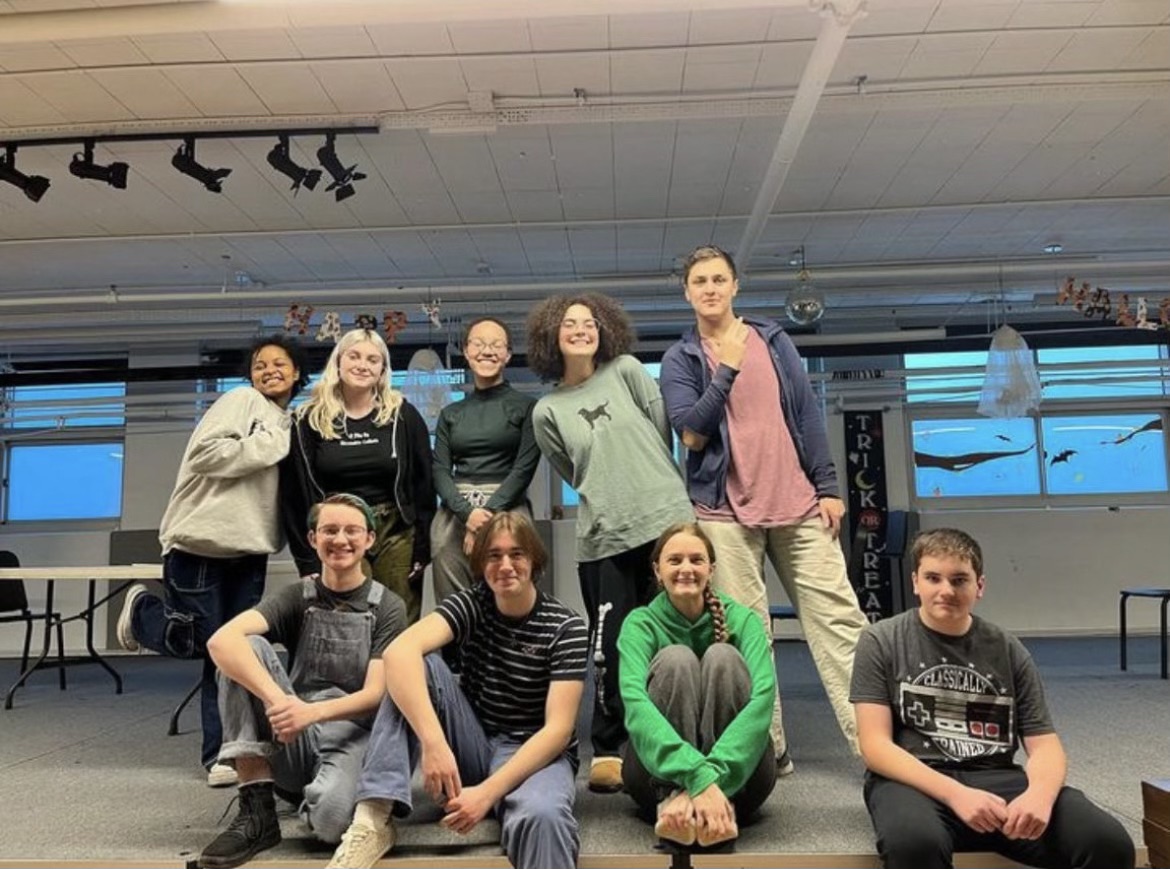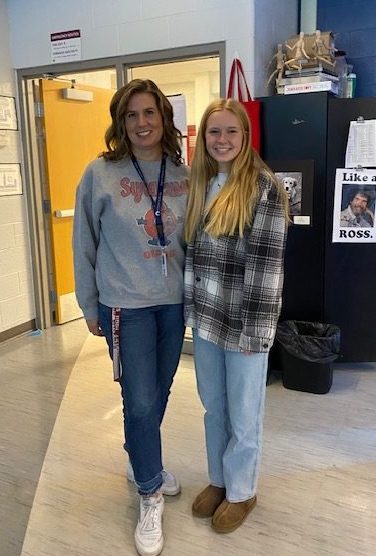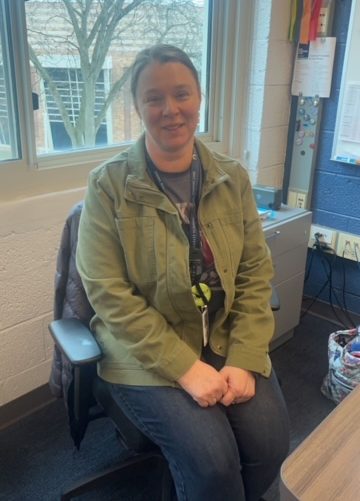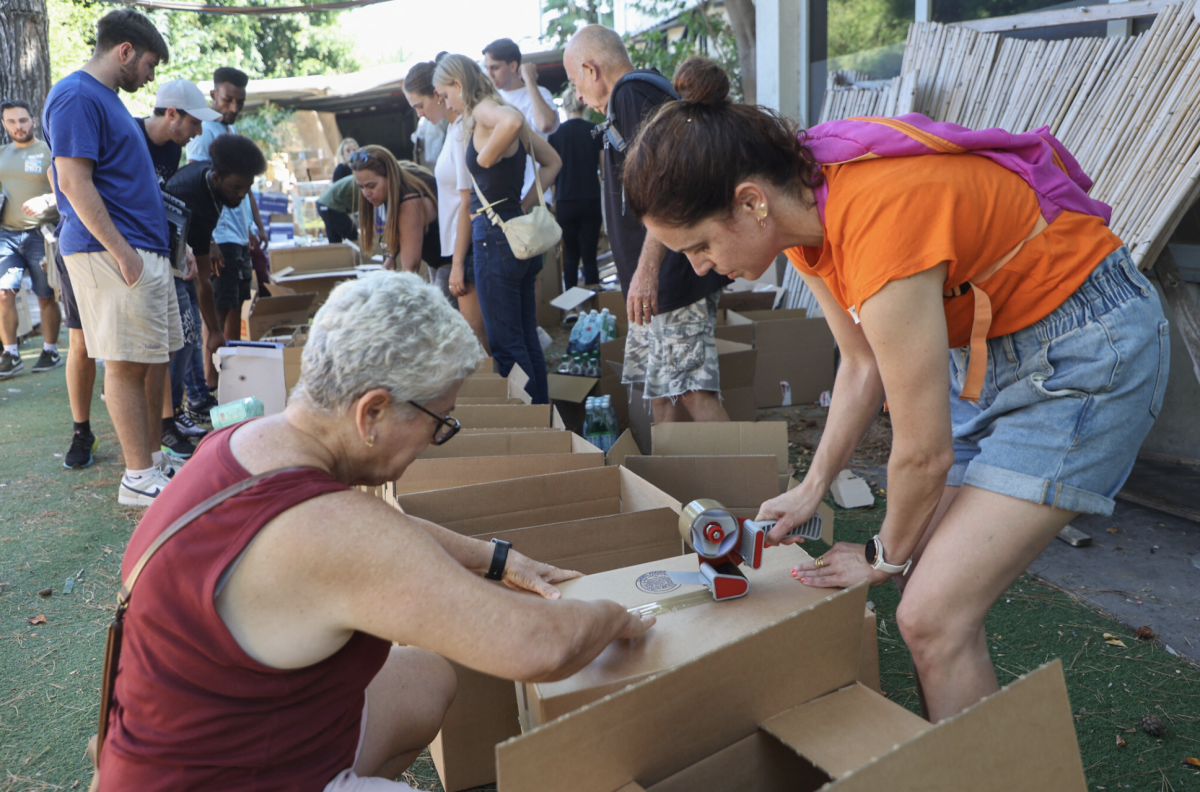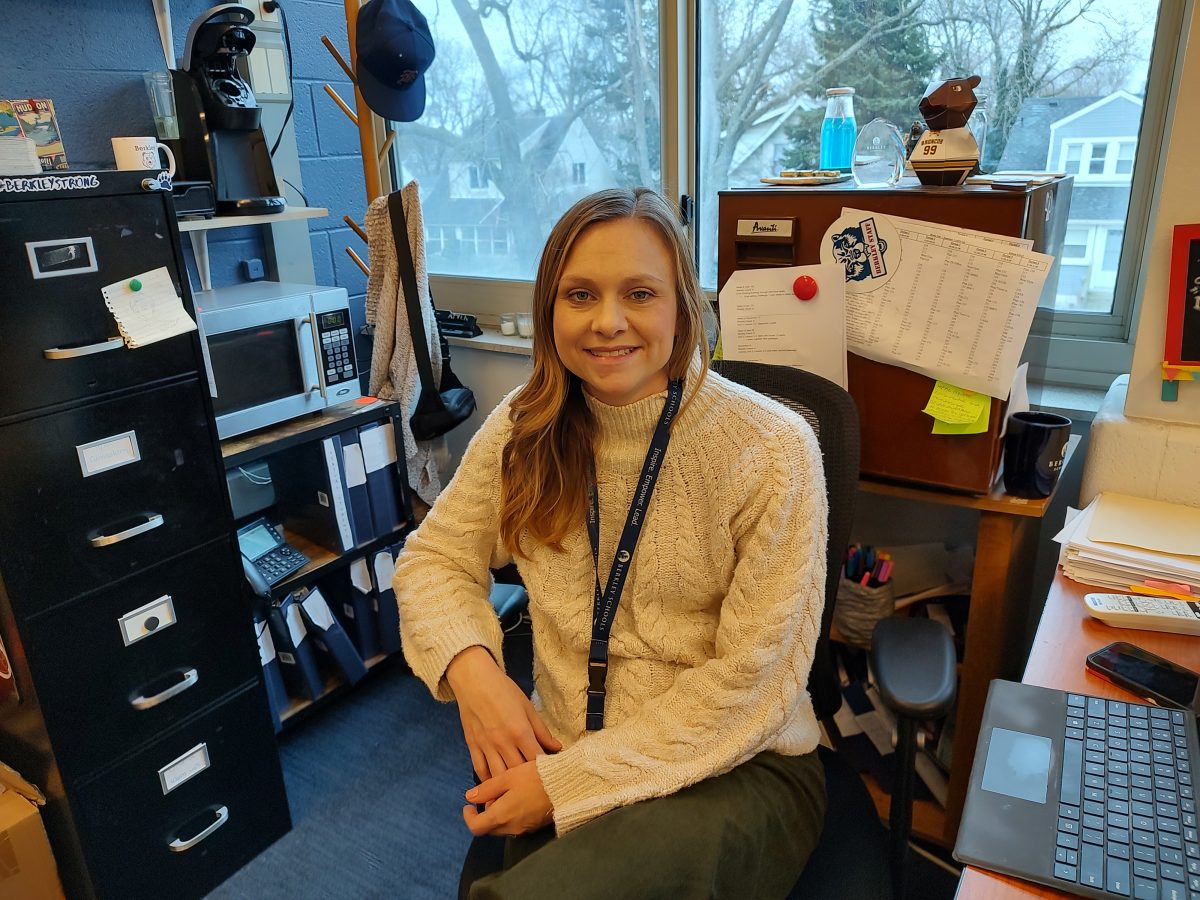We all look forward to the annual productions put on by BeDrama and this fall members have been working hard to perfect “The Musical Comedy Murders of 1940” for their November 16th opening night. It is easy for show-goers to overlook the hard work that goes into Berkley productions given how flawless they seem on stage. However, it is safe to say that the behind-the-scenes is far more complicated than what’s on stage. To get an idea of the blood, sweat, and tears behind BeDrama productions, Charley Burns, acting as the maid Helsa Wenzel, walks us through what it’s like to be a cast member in the fall play.
Starting several weeks before opening night, Burns shares the work they do in order to get off book, meaning the cast no longer needs their scripts. They explain, “I sit across from my mom in the living room while she reads the other lines back to me. It’s a lot of repetition and running scenes over and over again. I also try to practice some type of movement while talking to get a feel for what it’s really like when I’m on stage and distracted. Normally this takes about 3 hours, which sounds like a lot but when I split it up over a couple weeks, it’s easier.”
Burns then shares what rehearsals look like after the cast has memorized their lines: “After we are off book and blocked, we mainly just run the show as many times as possible. A lot of times in the week leading up to the show, we run it fully in costume with makeup, which also causes rehearsals to take a little longer. Usually J-Hops (Mr. Hopkins, the drama director) has a list of notes from the day before that he reads out to us. Normally these notes are about things like personal acting choices. The end of every rehearsal ends with each of us taking out our scripts and writing notes in the margins for the next day. The following rehearsal is facilitated by J-Hops who helps us ‘clean up’ scenes. Once we start getting the rhythm of the show it gets really fun.”
In the theatre world, the week before and of the play is known as “tech week”. Burns gives us the inside scoop on tech weeks, saying, “Tech weeks are rushed and can be stressful, but they are definitely rewarding. We have rehearsal everyday after school starting at 4pm. Rehearsals typically end anytime between 7 and 9pm, then if we need to, sometimes even 11pm or midnight. I think the latest I’ve been at Berkley for a rehearsal was like 1am but that’s mainly for the musical.”
Burns also provides insight into the dynamic between the crew and cast: “A large part of why tech week is so rewarding is because of our crew. We have the best crew in the world, truly the most efficient, amazing group of people, who get stuff done so quickly and so well. We interact with them a lot, and we are all very communicative. The cast/crew relationship is really great. Most of my friends are theatre people and people who work on crew. I think crew and cast used to be very separate, but the past three years we have all really joined into one force which is great because when we are all one force everything moves really well.”
After hearing about the intense schedule prior to the show, it’s hard to imagine how a highschooler in BeDrama can manage rehearsals and schoolwork. Burns shares that “A big part of finding a balance between rehearsals and schoolwork is communication with my teachers. I find the majority of them to be really understanding and compromising with things like deadlines. It is also a lot of me being in the wings with my laptop doing work during the time that I’m not actively on stage. Mainly it’s just really important to find the little moments to be efficient. Rehearsals are a lot of work but during tech week we are all fed and given breaks.” Beyond speaking to the commitment it takes to be a part of the play, Burns also demonstrates how it affects other responsibilities, like schoolwork.
Finally, after months of hard work, the time has come. Burns gives us a feel for the emotions that many students involved in the production can relate to. “The week of the play, we are doing it all out. Opening night is Thursday, so the Monday, Tuesday, and Wednesday prior to that we try to run the play at least once everyday. By the time it comes to Thursday night I feel really awesome. I do think there are nerves, but having been in six productions that anxiety seems to dissipate a little. On opening nights I’m surrounded by good chaotic energy, where everything is moving at once but it’s all okay and grounded.” Burns’ testimony goes to show that not only does the hard work of BeDrama make for a great show, it also alleviates stress for the cast on opening night.
To see the final product of the hard work put in by Burns’ and other BeDrama members, be sure to buy tickets for “The Musical Comedy Murders of 1940”, showing in the Berkley High School auditorium November 16- 18.


